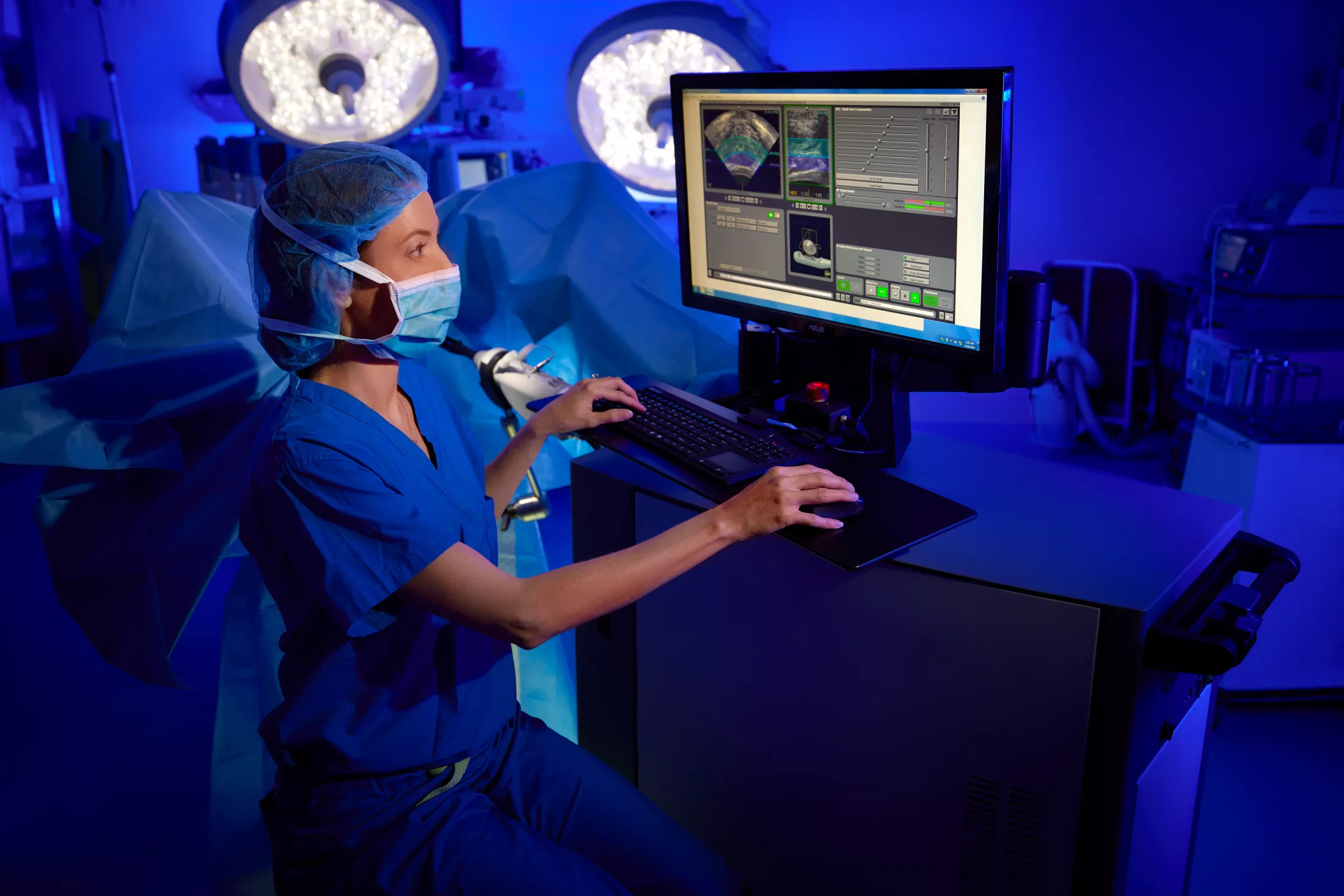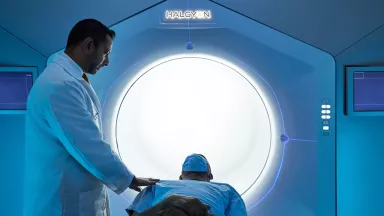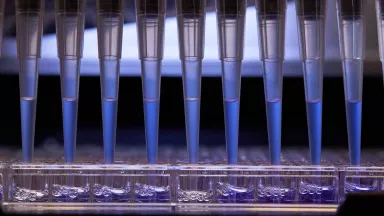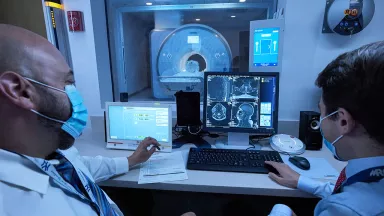HIFU is a Revolutionary Treatment for Prostate Cancer
As a leader in prostate cancer care, Montefiore Einstein is the only health system in eastern Westchester and the Bronx performing focal ablation, including cryoablation and high intensity focused ultrasound (HIFU), for patients with localized prostate cancer. HIFU is a minimally invasive and radiation-free treatment for prostate cancer that offers significantly reduced side effects.
How does HIFU work?
Much like a magnifying glass can focus sunlight, HIFU uses a device to focus sound waves. The cancerous tissue is first identified by magnetic resonance imaging (MRI) and confirmed through ultrasound. Concentrated ultrasound energy is then transmitted through the rectal wall with a special probe that heats and destroys cancer cells with precision. The innovative technique of using ultrasound instead of radiation effectively destroys cancerous lesions while sparing the surrounding healthy tissue.
What are the benefits of HIFU?
The highly targeted nature of this one-time, outpatient procedure means that the risk of side effects, such as incontinence and erectile dysfunction, is significantly reduced compared to other prostate cancer treatments.
This leading-edge approach offers numerous benefits, including:
- Fast recovery time: Most patients can return to their normal activities within a few days.
- Minimal side effects: HIFU avoids the potential side effects associated with surgery, radiation or hormone therapy.
- Improved quality of life: HIFU preserves sexual and urinary function in the majority of patients.
Who is eligible for HIFU?
HIFU is an effective treatment option for patients with localized prostate cancer with prostates that are not too enlarged. Our multidisciplinary team of experts carefully evaluates each patient to determine if HIFU is the optimal treatment approach.
What is the treatment process like?
HIFU is a one to two-hour outpatient only procedure performed under general anesthesia with Dr. Kara L. Watts. Following the procedure, a urinary catheter will be placed, which will stay for up to one week. Recovery time is two to three hours, allowing most patients to return home the same day.

To learn more about HIFU treatment or to schedule an appointment, please call 718-920-4531.








